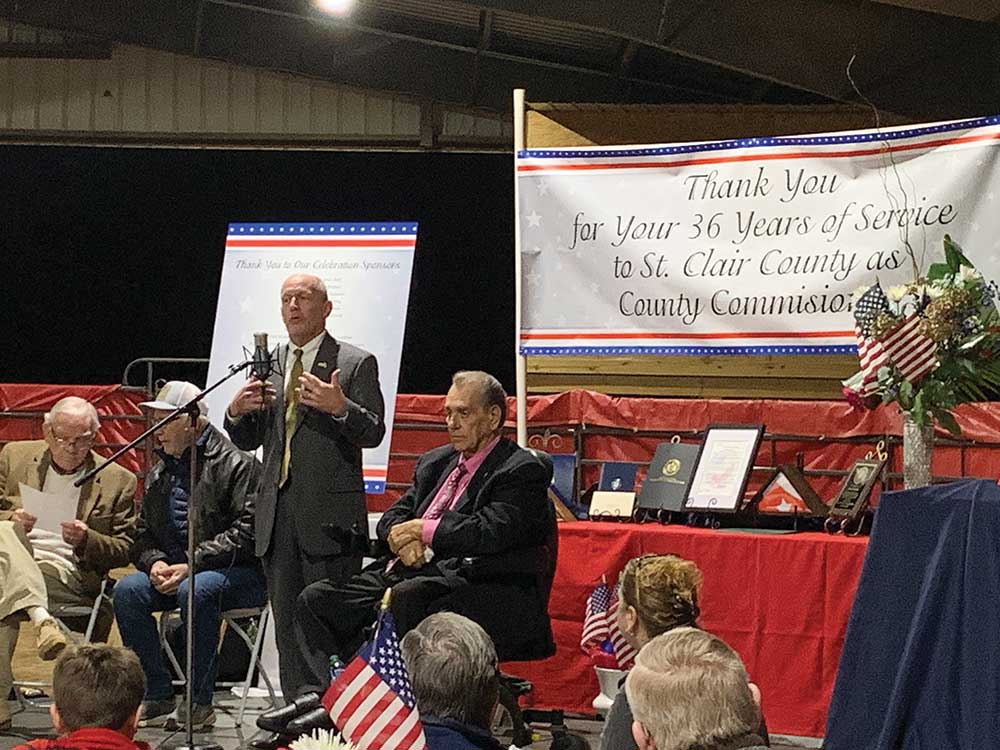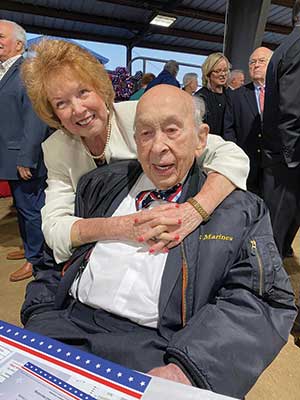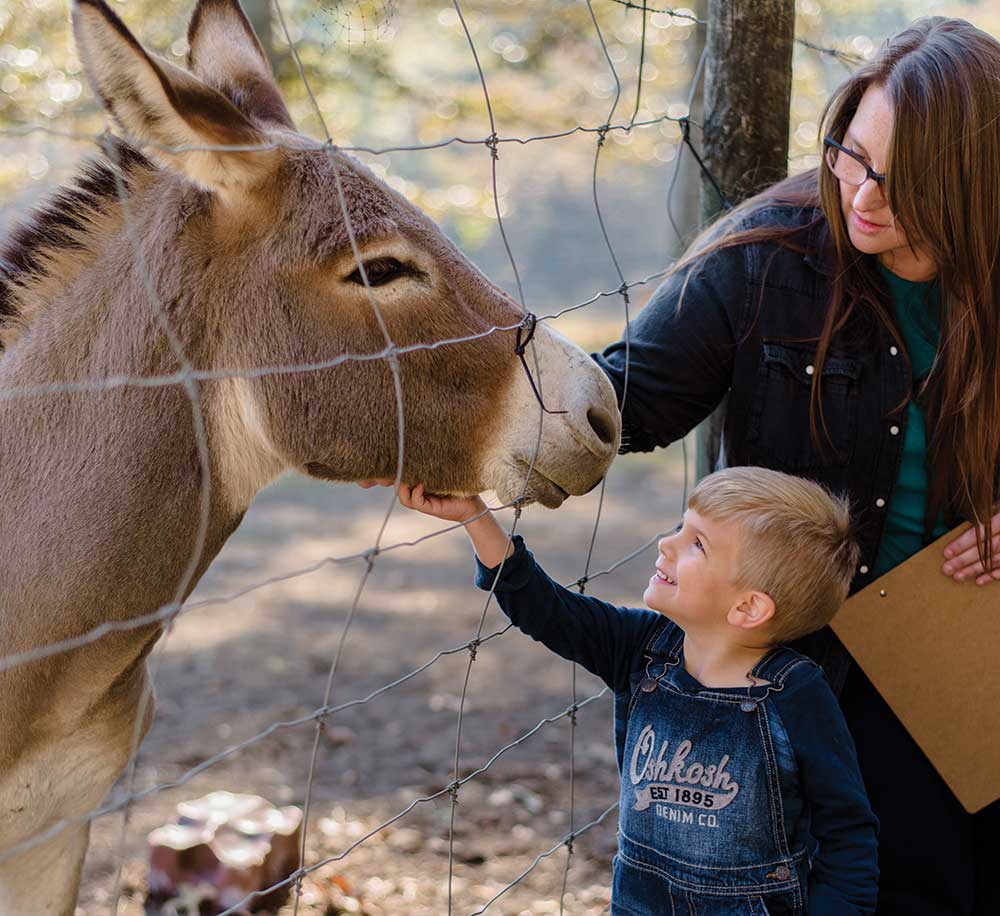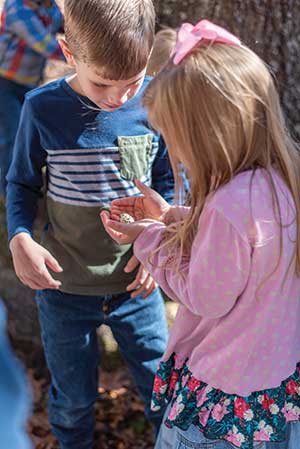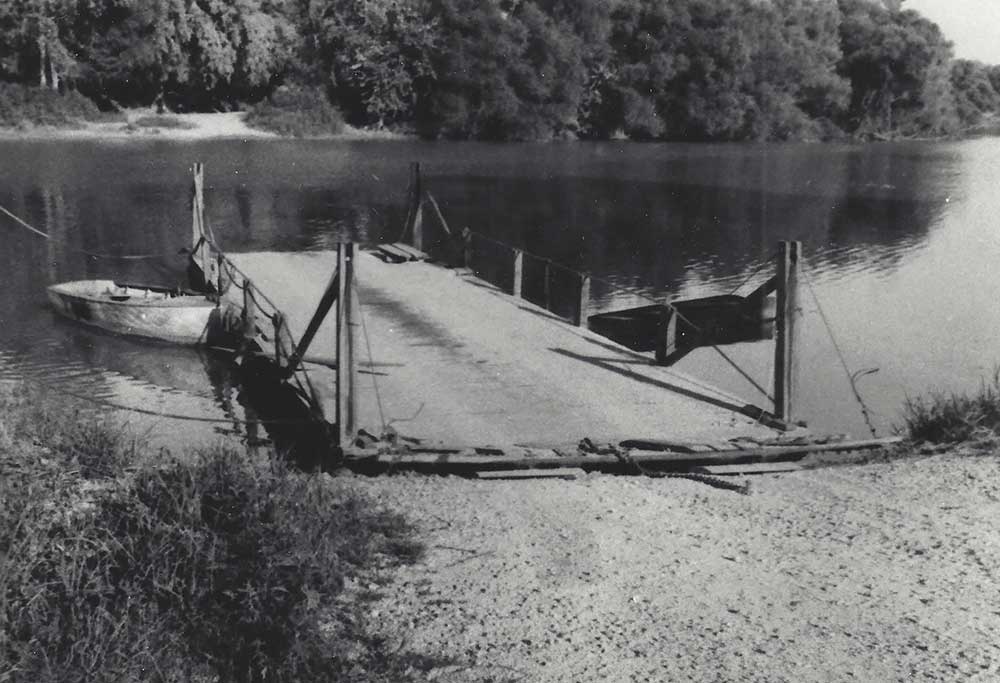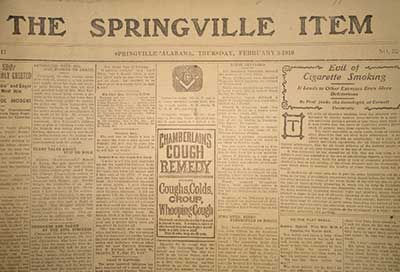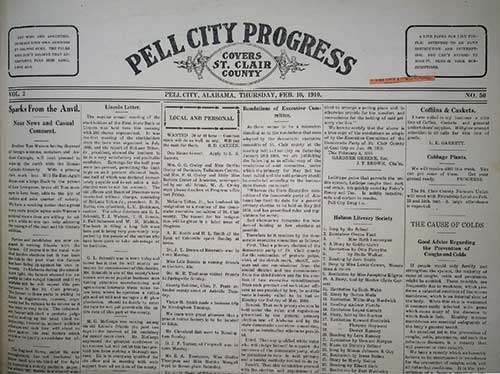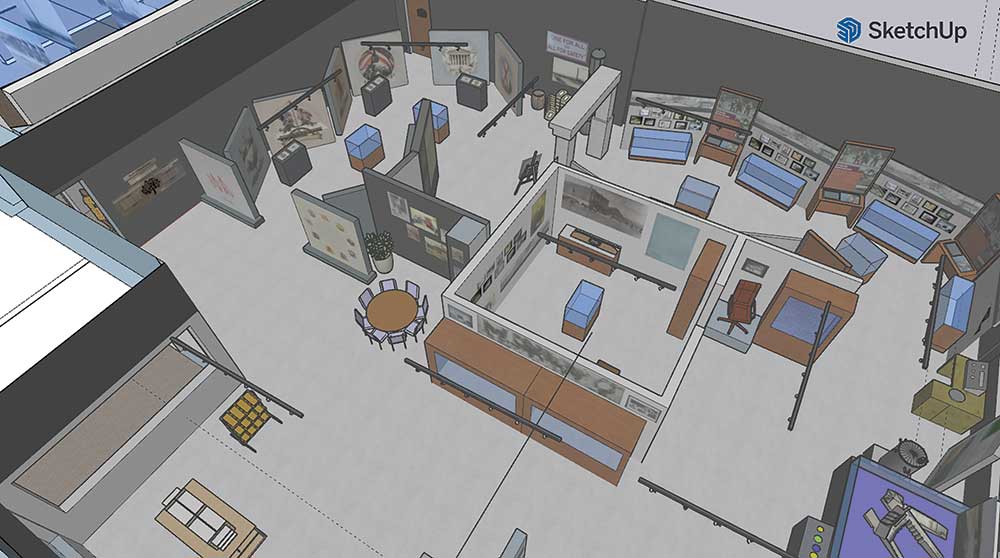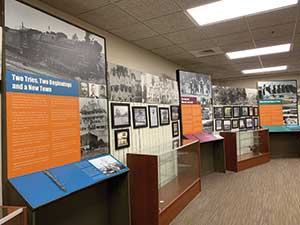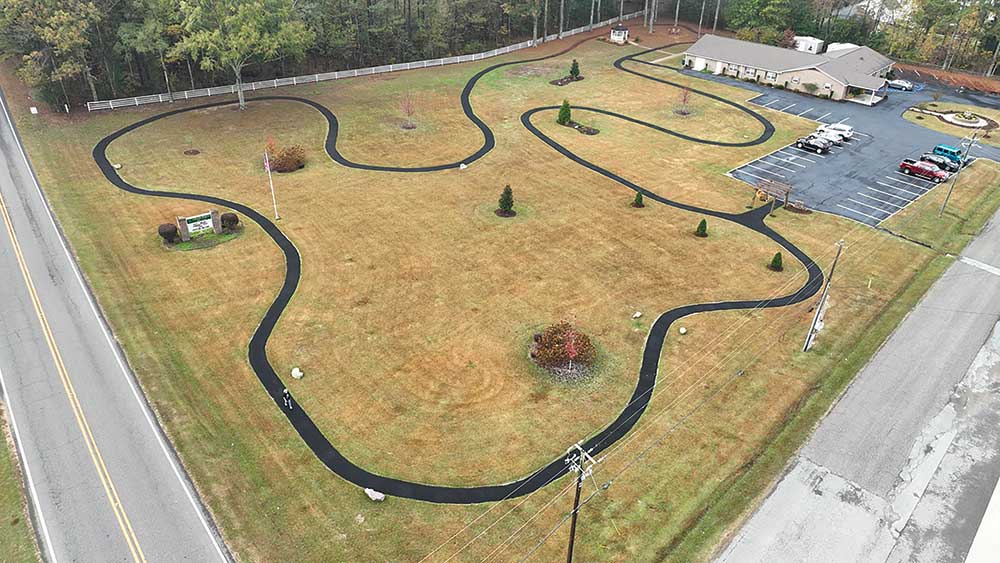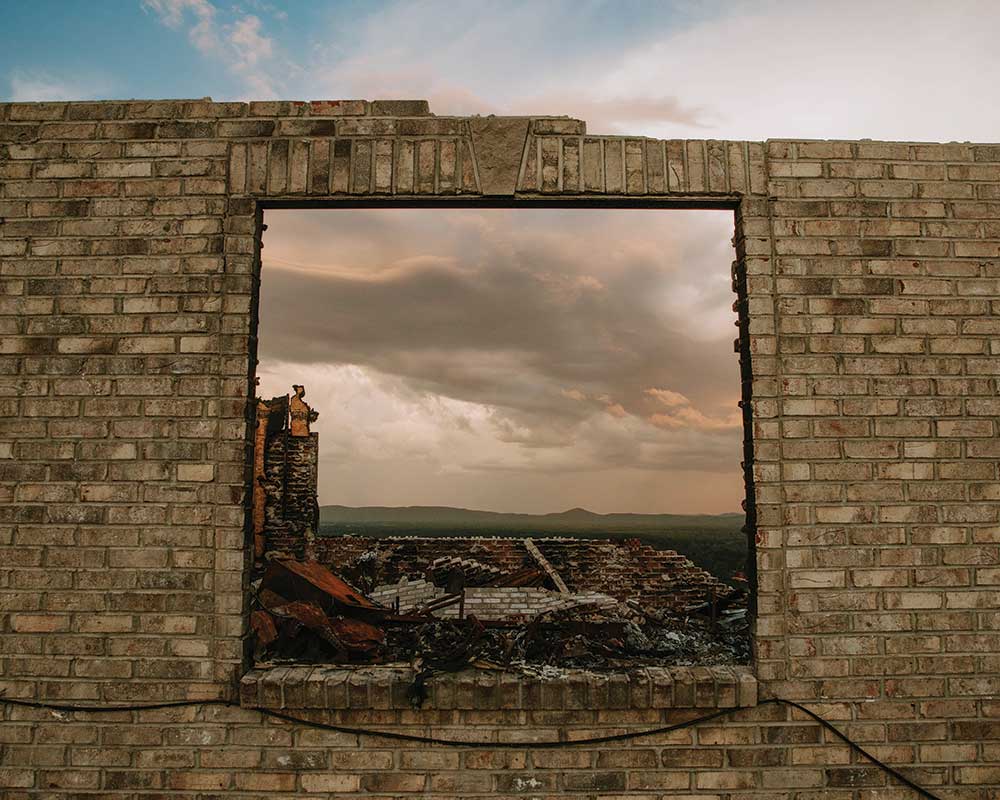Joy found in old county newspapers
Story by Joe Whitten
Submitted Photos
Our digital age gives access to newspapers without holding a copy in hand or sporting the ink smudges they leave behind. Although they can be read online, St. Clair County still has two newspapers one can hold, read and have ink-stained fingers if you want them.
Ashville published the first newspapers in the county, and the earliest was the Democratic Farmer, started by John Hambright in 1848, according to Mattie Lou Teague Crow in her History of St. Clair County. Mrs. Crow also documents The St. Clair Diamond, published by Thomas and W. J. Managham from 1859 until 1861, and then the Ashville Vidette published in the mid-1860s before and during part of the Civil War. After the war, in November 1868, S.J. Fowler published the St. Clair County Eagle for a while.
St. Clair’s first newspaper that continued publication began in 1873 as The Southern Aegis under the direction of George R. Cather, who moved from Maryland to Ashville with the expressed purpose to establish a newspaper. The Cather family owned the paper until 1944 when they sold it to Edmond Blair of Pell City. That paper is still published under the name of The St. Clair News-Aegis. Our other county paper is The St. Clair Times, published by The Anniston Star.
Since 1872, quite a number of newspapers were published in St. Clair County towns – Ragland, Odenville, Springville and Pell City. From 1873 when The Southern Aegis began, until the early 1920s, those towns published 12 different newspapers.
There is reference to one published in Cropwell in the 1890s, The Cropwell Enterprise, but there seems to be no copy existing today. However, a one-page photocopy from this paper dated Oct. 31, 1895, records some early history of Cropwell.
One paragraph tells of the difficulty of getting supplies to merchants in Cropwell and Coosa Valley in the first half of the 19th Century. It reads, “In this day of railways, it is hard for us to realize the inconveniences incident to business in Coosa Valley during the 1850’s and early 1860’s. Prior to 1866, all the merchandise for Coosa Valley was shipped to Greensport and carted thence to the points of distribution. When the river above Greensport was too low for navigation, the merchants were forced to haul their goods on wagons from Rome, Georgia.”
It further states that before the Civil War, the goods for Coosa Valley “… were purchased in Charleston, S. C., and no item was sold by the retailer for less than 100 per cent profit.”
Every newspaper had news from all communities, some of which no longer exist, such as Round Pond which was below Bethel Baptist Church on U.S. 411.
Interesting events caused by interesting people occurred in every community. The local news columns reported on who was visiting whom or who was “stepping out” (courting) someone. Church events and school events took first place many times. Sometimes feuds made the news and even murder. However, tidbits are often more interesting.
Liquor and religion combined in one brief report in the Springville Item’s, “Odenville News” on June 11, 1903: “Two fights Saturday at the church house. The Grand Jury should look after the boys. Young men, please leave your bottles at home when you start to church.” One wonders how the Grand Jury could “look after” the miscreants on a Sunday morning.
During the years of laying the railroad through Odenville, The Springville Item gave almost weekly updates of the construction progress. However, two reports had nothing to do with work.
On March 26, 1903, “Odenville News” in the Springville Item included with the railroad report, this comment, “Preaching was a failure in the [railroad workers’] camps Sunday.” Then three weeks later, April 16, the Item printed this: “Several of our railroad men joined the Odd Fellows Saturday night. Hope they felt like working Monday.” Preaching was a failure was followed by what must have been “A good time was had by all” weekend for the men later.
A reported suicide in Beaver Valley causes one to reread and speculate. As written Feb. 9, 1899, in The Southern Alliance, “Mr. Richmond Steed, of Beaver Valley, aged 70, killed himself at the residence of his son-in-law, Mr. Crow Harden, on last Monday morning. He used an old pistol which he brought home with him from the army in 1865. He fired three shots into his head.”
This was reported in several county newspapers with more information in each. The Southern Aegis of Feb. 9, 1899, gave specifics of the pistol. “During the war he had been a soldier in the federal army, and the weapon used in his own death was an army revolver he brought home at the close of the war and had preserved ever since as a relic of the war.”
Shooting himself in the head three times causes the inquiring mind to desire to question further.
The big news in April 1891 was electricity lighting the county seat of St. Clair. “Ashville Illuminated,” heralded The Southern Aegis, of Thursday, April 23, 1891.
‘Scott, Wells, and Lindsey’ [no surnames or company given] who installed the system, encountered several problems along the way, but finally they set the time and date, Saturday night at 7 p.m., April 18, 1891. The local steam whistle blasted on the hour, and 8-year-old Marcia Ney Cather quickly reached and pulled the switch.
The townspeople roared approval, guns were fired, and the band played as “Instantly … all Ashville was wrapt in a glorious brilliancy, magical, as it were, and wonderful to the expectant crowd watching the display. Ashville, for the first time in its history, could be seen in the light of one of the greatest inventions of the age.”
The invention of the automobile fascinated the citizens of St. Clair County, and when county folk began buying them, the excitement increased.
No one was more excited than Delia Smith, who wrote of day-to-day Ashville events in a diary she kept from June to November 1907. The Southern Aegis published the diary in 1932.
Delia expressed uncertainty about automobiles at first, writing, “Dr. J.B. Bass is having an automobile stable built to put his motor buggy in when it gets here. Give me old Dobbin. He may kick, (one kicked Andrew Cooley last Sunday), but at least they don’t sputter so.” June 26, 1907 [Southern Aegis, June 24, 1932]
Her attitude had changed by July when she wrote, “Ashville is getting bigger and better every day. We have three automobiles now. One for every 125 people. That’s more per population than any other town in the state. And folks thinking about buying more. I’m going automobile riding next week. I’m going to borrow Aunt Emma’s riding veil.” July 10, 1907 [Southern Aegis, July 15, 1932]
Then she went to the Alabama State Fair in October 1907 and wrote, that at the fair “… Walter Christie the great automobile racer was there. And you never saw such driving and heard such popping. I’ll bet he went every bit of 35 miles an hour. He simply flew, burning the wind as he went.” October 9, 1907 [Southern Aegis, October 8, 1932]
Delia Smith was not hopeful about hot air balloons and “air ships.” In the same diary entry as above, she wrote, “All Birmingham [at the fair] is talking of nothing else but Baldwin’s daring flight. [Thomas Scott Baldwin, 1853-1923] There were just heaps and heaps of balloons going up and down. I don’t believe that I’d feel particularly safe in that little basket swinging at the bottom of the balloon. I believe I feel safer riding a broom handle like the woman who sweeps the cobwebs out of the sky.”
And of air flight she observed, “I’ve been reading about these Wright brothers trying to invent a flying machine. One that will be run by a motor just like an automobile. The picture that they had in the paper looked to me like a couple of orange crates put together with a flutter wheel in front.”
One can hope that Delia flew in an airplane sometime during her life.
This headline from The Pell City News spurs curiosity, “Moving Van from St. Clair Raided Near Leeds” The Aug. 30, 1922, article begins, “Riley Jones is in the Hillman hospital with a bullet wound in his hip. Jas. Summerville and Mrs.BettisMary BettisMaryBettisMaryMary Bettis are in the county jail charged with violating the prohibition law, and Lee Bettis is a fugitive from justice, according to officers, as the result of an encounter with Deputy Sheriff J.E. Taylor and his assistant, BollingO. E.O.E. Bolling of Leeds, which occurred Thursday night … just outside the city limits of Leeds.”
Having been informed by long-distance telephone about erratic movements of the truck, Deputy Sheriff Taylor had secured search warrants and was ready when he stopped the truck. Riley foolishly made a grab at Taylor’s pistol, and Taylor shot him. Lee Bettis made a run for it and was still at large the next day.
When authorities searched it, “The truck contained a complete copper still, five hound dogs, two shotguns, one pistol, two kegs, one containing three gallons of whiskey and another two gallons; a jug and a quart bottle of whiskey, and a large cardboard box with many holes in it containing a “pet coon … The truck, dogs, coon and other articles are being held at the county jail.”
Elopements often made the news. Sometime the report used the old British phrase, “They went to Gretna Green,” a location in Scotland for secret marriages, like Rising Fawn, Ga., used to be for Alabama eloping couples.
The Aug. 4, 1897, issue of The Springville News in its “Brompton Paragraphs” column, reported an elopement intermingled with watermelon stealing.
“It is reported that a few nights since, somebody went over to Mr. Riley Moody’s to steal his daughter, but through carelessness … they got his watermelons. But foul play always comes when night is chosen rather than day. Mr. Moody himself chose day rather than night (to steal), so he came out all right with one of Mr. Taylor’s girls…. He chose for himself a Miss Mecie, one that he can call his own. Happy may you be, old friend, with your young bride.”
According to Rubye Sisson’s transcribed St. Clair County Marriage Records 1818-189, Riley Moody married Mercy Taylor July 29, 1897.
Wedding announcements should be standard – describing the bride’s dress, bridesmaids, flowers and music. However, one could ponder a while on this May 21, 1937, announcement in The Southern Aegis (names omitted to avoid embarrassment). “The many friends of Mrs. ___ ___ will read with interest the marriage of her daughter Miss ___ ___. The wedding was consummated in Houston, Texas, last week.”
Wrong choice of word or too much information? No matter, it just adds to the joy of reading old St. Clair County newspapers.











